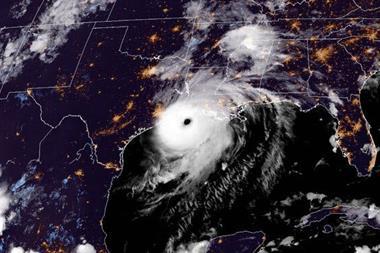Conflict in Ukraine has exacerbated the severity and range of risks businesses are now grappling with
Eight in ten chief audit executives report that Russia’s war on Ukraine has adversely impacted macroeconomic and geopolitical risk, making it the number one risk exacerbated by the conflict.
This is according to research by the Chartered Institute of Internal Auditors (Chartered IIA).
Prior to the war in Ukraine, macroeconomic and geopolitical risk ranked outside the top five risks businesses were grappling with, but it is now front and centre of the risk agenda.
This has forced many businesses to now consider macroeconomic and geopolitical uncertainty a business-critical risk that must be addressed for the first time.
The steep ascent of macroeconomic and geopolitical uncertainty up the list of risks to business has been found by a new poll of over 800 chief audit executives commissioned to monitor which risks have been most impacted by the war in Ukraine.
Other risks exacerbated by the war in Ukraine include cybersecurity, business continuity and crisis management, supply chains, and financial, liquidity and insolvency risk.
Urgent need for audit reform
John Wood, chief executive of the Chartered Institute of Internal Auditors said: “Our poll shows that the war in Ukraine means businesses are now facing the perfect storm of geopolitical and macroeconomic related risks, elevating geopolitical uncertainty to the top of the risk agenda.
”The research also demonstrates that geopolitical and macroeconomic risk does not sit in a silo, but instead interlinks and exacerbates a whole range of other business critical risks, including cybersecurity, business continuity and crisis management, supply chains, and financial, liquidity and insolvency risk.
”With businesses now facing an adverse business risk environment that we have not seen for decades, this also underlines the urgent need for the Government to stop kicking the can down the road and crack on with audit and corporate governance reform.
”High quality and effective audit is essential in supporting boards and investors to navigate the financial challenges ahead and vital for our economic resilience. We therefore urge Ministers to accelerate plans for an Audit Reform Bill.”
Getting to grip with sanctions
John Devine, risk committee chair, abrdn said: “There can be no doubt that the War in Ukraine has created significant business disruption, exacerbating a myriad of business-critical risks.
”At abrdn, it tested and affirmed the strength of our protocols and showed we were well positioned to deal with what was a volatile and complex market event.
”This included having to quickly get to grips with the impacts of economic sanctions, ensuring we comply with new legal requirements, and keeping our eye on the ball in terms of the macroeconomic environment we are now operating in with rising inflation and interest rate rises.
”With the economic outlook looking volatile for the foreseeable future, it is more important than ever for businesses to make sure they are identifying, mitigating, and managing their geopolitical related risks effectively.
“In this rapidly changing environment internal audit functions must be flexible and willing to react swiftly in delivering high quality audit reports on new risks as they emerge in real time.”
| The top 10 risks for Risk in Focus 2023 – The War in Ukraine Question, were: |
|---|
| 1. Macroeconomic and geopolitical uncertainty (79.02%) |
| 2. Cybersecurity and data security (76.74%) |
| 3. Business continuity, crisis management and disasters response (57.55%) |
| 4. Supply chain, outsourcing and ‘nth’ party risks (56.83%) |
| 5. Financial, liquidity and insolvency risks (52.28%) |
| 6. Change in laws and regulations (33.09%) |
| 7. Communications, reputation and stakeholder relationships (24.94%) |
| 8. Health, safety and security (24.7%) |
| 9. Fraud, bribery and the criminal exploitation of disruption (21.58%) |
| 10. Climate change and environmental sustainability (15.35%) |




















No comments yet